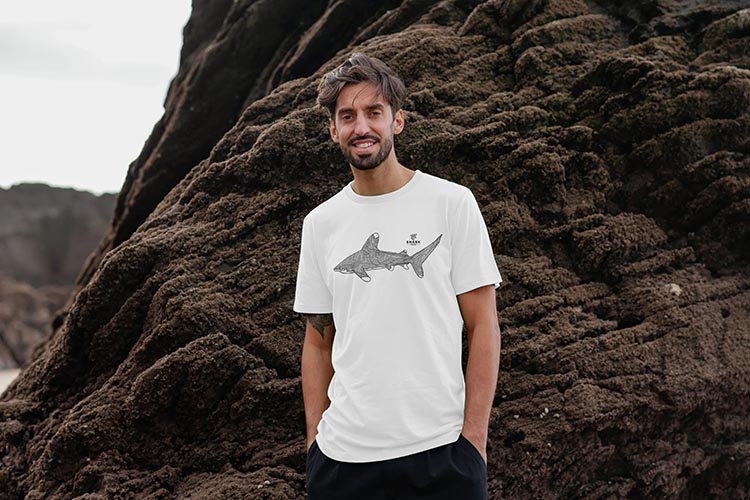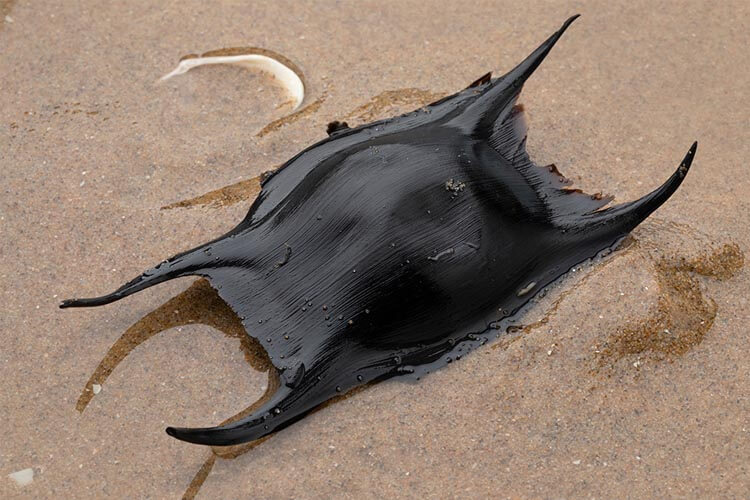
The Shark Trust is asking divers and snorkellers to help with shark sightings during Global Citizen Science Month
April is Global Citizen Science Month and if you are heading off for any scuba diving or snorkelling adventures in the coming weeks (or any time of year, for that matter!) then the Shark Trust is asking for assistance in gathering data about sharks and rays – wherever in the world that might be.
In particular, the Shark Trust is looking for specific data from divers who might encounter oceanic whitetip sharks and basking sharks they see.
If you’re heading to the beach and don’t fancy jumping in the water, then you can search the shoreline for shark and ray egg cases and report any specimens you find as this data helps with the scientific understanding of species distribution and population size.
Sightings can be logged on the Shark Trust Website: recording.sharktrust.org, or
Download the Shark Trust App:
Oceanic whitetip sharks

The Shark Trust is looking specifically for Oceanic Whitetip Shark sightings over the coming weeks and months. So, if you are diving anywhere in the world, please report your sightings via the website or app.
Known for their incredibly long dorsal and pectoral fins – the scientific name for the species is Carcharhinus longimanus, the ‘shark of the long hands’ – oceanic whitetips were once the most abundant pelagic shark species in the world.
Oceanic whitetips are a very inquisitive species, once nicknamed ‘sea dogs’ for their propensity to follow boats, and divers who have encountered them will be familiar with their sometimes nerve-wrackingly close inspections. This behaviour made them an easy target for fisheries, and, combined with a low rate of reproduction, their populations were decimated, with declines in abundance of up to 99 per cent in some locations. As a result, they are listed as Critically Endangered on the IUCN Redlist of Threatened Species.
Conservation efforts to discourage further declines include listing on CITES Appendix II and CMS Appendix I, and they are also the only species prohibited from take by all the Tuna RFMOs (Regional Fisheries Management Organisations).
However, these measures do not mean that Oceanic Whitetips are not still caught – whether targeted or as bycatch – in some parts of the world. With populations declining at such a high rate, effective implementation of management measures is essential to ensure that the species can recover.
All images submitted with sightings, that also give consent to use in conservation messaging, will be in with a chance to win an Oceanic Whitetip T-shirt (picture above) and mug. The competition will run until the end of Shark Month in July – so keep those sightings (and images) coming in.
Basking sharks

Basking Shark season around the British Isles here, and the Shark Trust is asking citizen scientists to keep an eye out for the majestic giants over the summer months and record any sightings in the Basking Shark Sightings database.
Each year between April and October, basking sharks (Cetorhinus maximus) return to UK and Irish waters to feed on plankton between April and October, and can be spotted feeding at the surface – giving them the appearance of ‘basking’ in the sun, hence the name. They are usually solitary, but occasionally spotted in groups They can be seen feeding at the surface of the water, where they look like they’re basking in the sun. Thus, their name!
Sighting hotspots around the British Isles include southwest England, the Isle of Man, the north coast of Ireland, and western Scotland. The Sea of the Hebrides is the most prolific sightings area in Scotland, but they have been spotted all around the coast and have even ventured into some of the sea lochs.
The Shark Trust has received thousands of sightings since the Basking Shark project began, but more data is needed to truly understand the distribution and size of basking shark populations.
Great Eggcase Hunt

The Shark Trust’s Great Eggcase Hunt extends well beyond Easter – for the whole year, in fact – and it’s easy to get involved with a big citizen science project that helps shark, ray and skate conservation. It’s also an enjoyable activity for families, scouring the waterline searching for shark and ray egg cases.
Divers and snorkellers can also record their underwater egg case findings, as underwater records help pinpoint exactly where sharks and skates are laying their eggs. Learning the depth and substrate they lay their eggs on also helps better understand the species.
Find out more: www.sharktrust.org/great-eggcase-hunt
Whether you are diving, snorkelling or exploring on the beach you can take part in Citizen Science Month and get actively involved in shark and ray conservation. Find out more at: www.sharktrust.org




